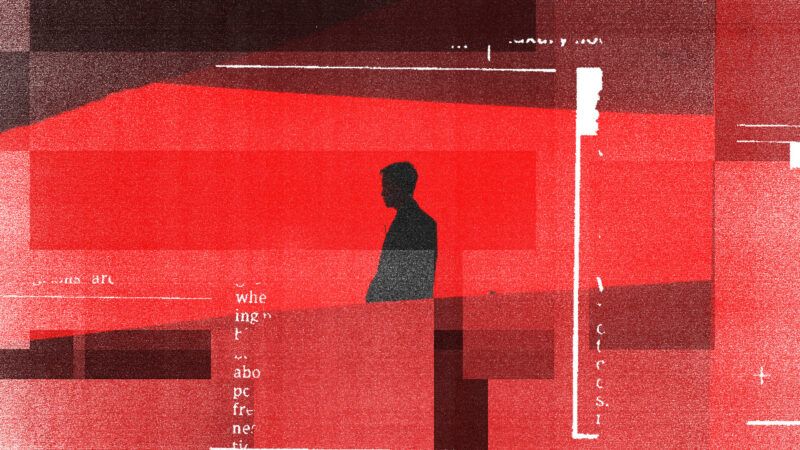Prosecutors Agree He Shot a Man in Self-Defense. They're Still Trying To Put Him in Prison.
LaShawn Craig may spend years behind bars—because the gun he used to justifiably shoot someone was unlicensed.

A New York City man is facing several years in prison after killing someone who'd broken into his apartment.
But perhaps most interesting is that, at his arraignment last month, prosecutors did not dispute that LaShawn Craig acted in self-defense when he fatally shot Timothy Jones. Instead, they hit Craig with several charges related to the criminal possession of a weapon, because he did not have a license for the handgun he used to protect himself.
On November 17, Craig, who has no criminal history, was standing outside his building talking to a neighbor when he heard his home alarm go off. After returning to his residence, he found Jones—wearing a mask and gloves—who, after Craig ordered him to leave, reached into his pocket. (It was later determined that he had a Taser.) Craig then fired several shots, after which he called 911.
Law enforcement reportedly labeled the shooting a "justified homicide." While obviously a tragic situation, that's clearly the correct decision. Which also makes the government's choice to prosecute him for criminal possession of a weapon, a violent felony, all the more preposterous. Put differently, Craig should spend years in prison, law enforcement says, not because he used his weapon improperly, but because he used it without first jumping through the barriers—which are both time consuming and financially burdensome—required to register a gun with the government.
Craig is far from the first such defendant. This past summer, Charles Foehner, an elderly New York City man, shot a man attempting to mug him. Soon after, he learned that prosecutors would seek to have him die in prison. But it wasn't because he hadn't acted in self-defense. He had, the proof of which was caught on video. It was because police searched his apartment after the shooting and found that only some of his weapons were licensed with the government.
Jones, whom Craig killed, reportedly had over 20 prior arrests for grand larceny, robbery, and domestic violence, among other convictions; Cody Gonzalez, whom Foehner killed, had at least 15 prior arrests. Like Craig, Foehner has no criminal record. And yet Foehner, if convicted on all charges, would go to prison for far longer than Gonzalez would have had he survived.
Opposition to New York's gun licensing scheme has, refreshingly, attracted some strange bedfellows. The 2022 Supreme Court ruling in New York State Rifle & Pistol Association, Inc. v. Bruen paralyzed parts of New York's restrictive licensing rules governing concealed carry. Among those cheering that result: progressive attorneys.
The year prior, The Black Attorneys of Legal Aid, The Bronx Defenders, and Brooklyn Defender Services submitted an amicus brief, asking the high court to incapacitate New York's approach to concealed carry. As I wrote in June:
They offered several case studies centered around people whose lives were similarly upended. Among them were Benjamin Prosser and Sam Little, who had both been victims of violent crimes and who are now considered "violent felons" in the eyes of the state simply for carrying a firearm without the mandated government approval. Little, a single father who had previously been slashed in the face, was separated from his family while he served his sentence at the Vernon C. Bain Center, a notorious jail that floats on the East River. The conviction destroyed his nascent career, with the Department of Education rescinding its offer of employment.
Now LaShawn Craig will have to add his name to the unenviable list of people who used his gun to protect his life and was prosecuted for it anyway.


Show Comments (91)